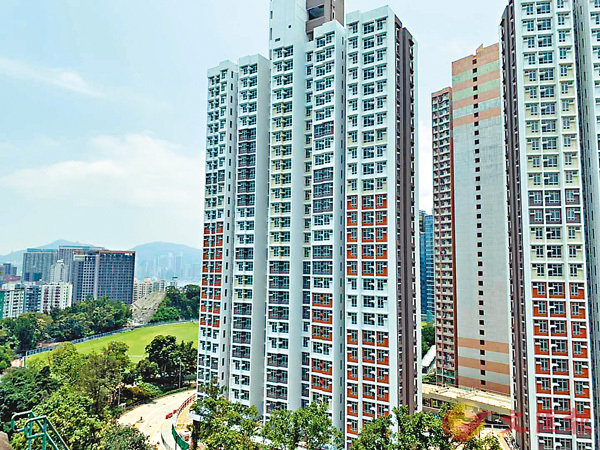 ■居屋除非補地價,否則不能出租圖利。 資料圖片
■居屋除非補地價,否則不能出租圖利。 資料圖片【原文】房協去年9月推出「未補地價資助出售房屋出租計劃」,可惜反應冷淡。消息指當局計劃放寬限制,容許出租整個單位,以及將出租對象擴展至房委會轄下的出售房屋,約41萬個單位符合資格。放寬居屋出租限制,釋放更多租金較便宜房屋,有力真正發揮改善基層居住環境的作用。當局應設定好租金限制,既體現機制照顧基層的目的,亦兼顧社會公平。
房協推出的未補價房屋出租計劃,大半年只是批出5張合資格出租證明書和22張合資格租住證明書,而且沒有一宗成功配對個案,反映計劃限制過多,成效不彰,其中最大問題是計劃限制業主只能分租。正所謂「相見好同住難」,現在已不是「72家房客」的年代,市民注重私隱,陌生人或不同家庭共住一個單位,諸多不便,計劃自然吸引力欠佳。因此,放寬限制,可整個單位出租,相信可大大增加計劃吸引力。
現時資助出售房屋主要分為居屋和租置公屋,按照《房屋條例》,這些單位除非補地價,否則不能出租圖利,違者最高刑罰為罰款50萬港元及監禁1年。居屋政策已有40年歷史,租者置其屋計劃也推出了22年,容許這些單位進入租賃市場,可以增加租盤供應,對於緩解本港租金貴、住屋供應緊缺有實際作用。
不過,由於未補價的資助房屋有政府資助成分,業主購入單位時,本來限定只能自住,如果任由其在市場上以市價放租,難免造成雙重得益,有違社會公平。因此,當局考慮放寬居屋出租限制,必須堅持善用房屋資源、照顧基層需要的出發點,在業主和租客的資格上設合理限制。
業主方面,計劃規定合資格業主,要擁有物業10年或以上,相關規定應保留,以免吸引太多人抽居屋放租牟利,攤薄有需要人士抽中的機會,更令居屋變成生財工具。租客方面,應堅持協助公屋輪候冊人士為政策目標,限定居屋只能租予輪候公屋3年以上的人士及家庭,優先照顧基層市民。至於租金方面,雖然報道指計劃擬由業主自訂租金,但是既然計劃以輪候公屋的人士及家庭為對象,租金亦應設定合理上限,不能允許以市值租金出租,否則計劃將會失去照顧基層的意義。 (摘錄自香港《文匯報》社評22-5-2019)
Ease restrictions on letting scheme to assist needy tenants
【譯文】Launched by the Hong Kong Housing Society (HKHS) in September 2018, the "Letting Scheme for Subsidised Sale Developments with Premium Unpaid" has only received lukewarm response. Sources said the HKHS is now planning to loosen restrictions, allowing entire flats to be leased out. Also, the letting scheme might be expanded to include subsidised flats that were sold by the Hong Kong Housing Authority, which would add another 410,000 eligible flats to the scheme. Relaxing the restrictions on the letting scheme and releasing more affordable flats to the rental market will make it possible to really improve the living conditions at the grassroots level. The authorities should set a cap on the rent a landlord could charge, so as to achieve social equity while realising the goal of helping the grassroots.
Over the past few months since the HKHS' letting scheme has been rolled out, only five owners have been approved to rent out their rooms, while 22 tenants have been found qualified to rent them. Not a single successful match has been made. It is obvious that the numerous restrictions have undermined the attractiveness of the scheme. The biggest flaw of the scheme is that it only allows owners to rent out spare rooms, not the entire flat. The era of the 1970s classic, "the House of 72 Tenants", has been long gone. As people nowadays value private space, it is only natural for them to find the letting scheme unappealing, as they will have to live under the same roof with strangers, or even a whole different family. Therefore, loosening the restrictions to allow entire eligible flats to be rented out could boost the letting scheme's attractiveness.
At present, subsidised sale flats in Hong Kong are mainly comprised of Home Ownership Scheme flats and Tenants Purchase Scheme flats. Under the provisions of the Housing Ordinance, these flats shall not be leased out unless the owner settles the land premium first. The maximum penalty for unlawful alienation is a fine of HK$500,000 and imprisonment for one year. As the Home Ownership Scheme and the Tenants Purchase Scheme had been launched for 40 years and 22 years respectively, expanding the letting scheme to allow these units to enter the rental market can swiftly increase supply. This will be a pragmatic approach to alleviate the high rents and the housing shortage in Hong Kong.
However, since the subsidised flats with unpaid premium were purchased at a discount and specific for self-use purpose only, it will precipitate double benefits and contradict social equity principles if owners are allowed to freely lease out such flats on market rates. Therefore, the government must hold firm its original intention of addressing the needs of the grassroots when considering to ease the restrictions of the letting scheme, and seek to set reasonable limits on the qualifications of flat owners and tenants.
Under the current rules of the letting scheme, eligible owners must have owned the property for 10 years or more. Such provisions should be kept unchanged in order to prevent attracting speculative Home Ownership Scheme applicants, who only seek to rent out their flats for profit. In such a case, those who are in need would have a greatly reduced chance of a successful application, and the Home Ownership Scheme flats would be reduced to money-making tools of opportunists. The authorities should also adhere to their intention of assisting those who are waiting for low-rent public housing, and limit eligible tenants to those who have been in the queue for public rental housing for at least three years. As for rental rates, despite the HKHS said it will be set through negotiations between the owner and the tenant, the letting scheme is originally intended to help needy individuals and families that are on the waiting list for public housing. Instead of allowing owners to lease out their subsidised flats at market rates, a reasonable cap on rents should be put in place, otherwise it will defeat the purpose of addressing the needs of the grassroots.■Jeffrey Tse (ywc_jeffrey@hotmail.com)
Exercise
1. 業主/房東
2. 租約
3. 香港房屋協會 (房協)
4. 房屋署
5. 香港房屋委員會 (房委會)
Answer
1. landlord
2. tenancy agreement
3. the Hong Kong Housing Society
4. the Housing Department
5. the Hong Kong Housing Authority

